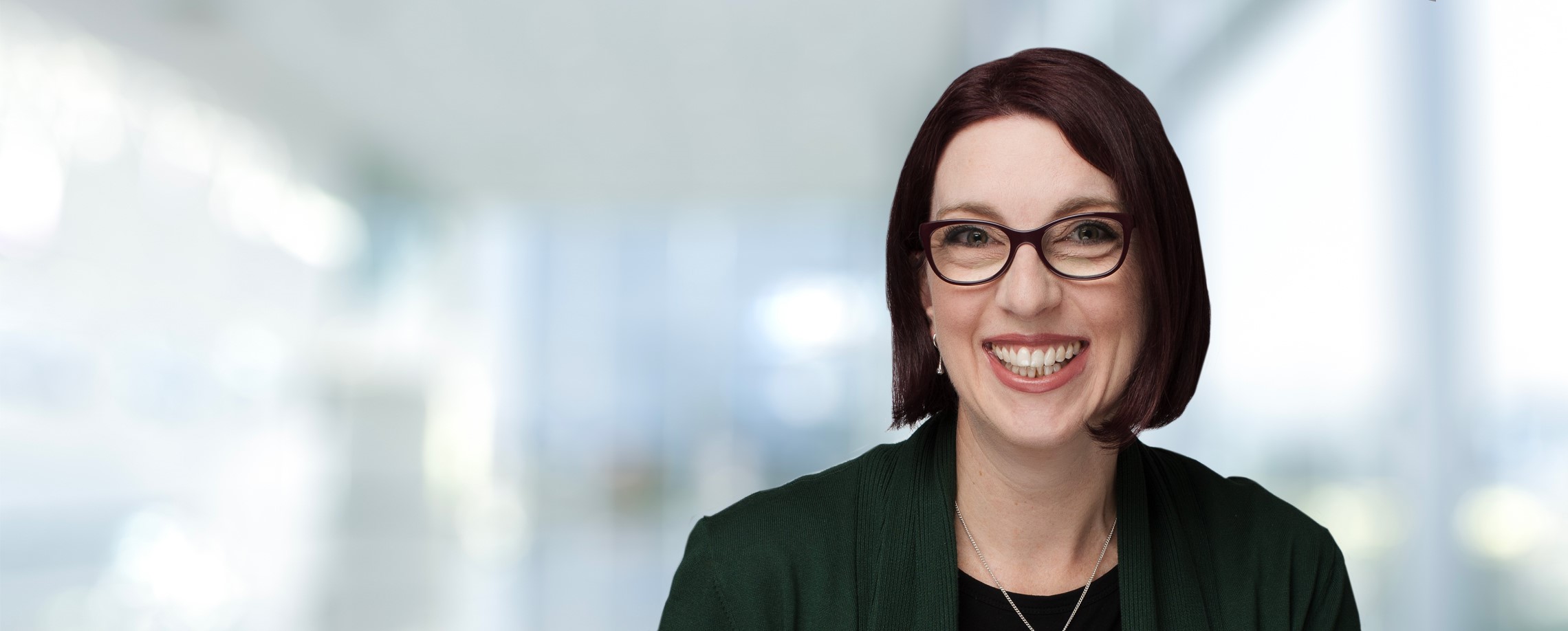
- Author: Nina Hendy
- Posted: July 6, 2021
Meet the Financial Storyteller: Karma Auden
Telling the story behind the numbers in a spreadsheet can be the difference between broad organisational understanding and blank stares across the boardroom table.
Despite this, finance people don’t often recognise the importance of explaining the numbers in laymen’s terms, the director of finance and business services at the University of Canberra, Karma Auden says.
“I get very frustrated when I see people talking about number variances and they’re just referring to a number going up or town, without explaining the reason why,” Auden says.
She recognised this common industry problem early in her career. Sitting in meetings, she recalls having to translate conversations between the management team and the accountant. These regular exchanges gave her perspective on the importance of financial storytelling.
“We’re all speaking English, but I was translating from the accountant to the manager, and then back again to the accountant. I am constantly trying to work out how we can change that for accountants, because a lot of people who do business storytelling come from a sales and marketing background. But accountants need to be telling the story.”
When interviewing new talent, she asks questions that require financial storytelling to ensure the prospective new team member is able to articulate the reason for spreadsheet changes. “Storytelling means everyone has a bit more understanding about what’s really going on,” she says.
Auden has been with the University of Canberra for four years after returning from an eight-year stint in the Middle East. She had mostly worked in the commercial property sector, but spent time working for a British not-for-profit in the educator sector – among other roles – while based in Abu Dhabi, in the United Arab Emirates.
She hadn’t planned to go overseas. But an after-hours call from a recruiter one evening while she was relaxing in front of the television at home with her husband, prompted the couple to contemplate the offer over the coming weeks. “I loved my job and the people I was working with, but wanted to learn more about the opportunity,” he says.
The pair hadn’t travelled before, so organised passports and headed overseas. “We figured if we don’t go, we’ll always wonder what it would be like. And if it doesn’t work out, we knew we could always come back,” Auden says.
Each time the couple returned to Australia for a visit, they wondered if the pull would be strong enough for them to return home. Finally, they returned home in 2016 after eight years overseas.
Auden was keen on a role that allowed her to live in a rural area on property with horses. “I was looking for a little big city or a big little city on our return,” she says.
An Australian recruiter presented her with an opportunity to join the University of Canberra, which she jumped at. Her remit is broad, covering payroll, procurement, student accommodation, retail tenancies and leasing, strategic financing and treasury.
Working in the Middle East is patriarchal and male dominated, she says. “One thing I did notice when I came back to Australia was I felt the status of women at work had slipped backwards. And we know now that we’re seeing that in the gender equality statistics. But I actually felt that was quite bizarre to see that, especially coming from Abu Dhabi,” she says.
The University of Canberra feels like a safe haven when contemplating the suffering occurring overseas during the pandemic. Auden says: “We’re grateful that we left on our own terms, because a lot of people were losing jobs and being forced out. We had the luxury of choosing what we wanted to do,” she says.
“I enjoy the role here because it’s quite diverse, and there’s a lot of property-related things going on, with student accommodation and leasing in my portfolio, as well as campus development activities.”
However, the nation’s education sector has been through major financial upheaval in the past year as border closures prevent intakes of international students into the university sector.
Being a smaller university that starts its semesters earlier than other universities shielded it financially in some ways, with the smaller intake of international students already on Australian soil when the borders closed. This prevented a lot of the upheaval. “Although we did have some Chinese students who couldn’t make it into the country,” she says.
The university moved to a hybrid work model at the height of the pandemic last year, which remains in place. This makes it challenging to get the 35 people in the finance team all together.
“It takes some time for everyone to adapt to these working arrangements. You could be in a position where you have 12 people in a meeting, and two people online. You have to make sure you include the people online in the conversation, which is a challenge,” she says.
She’s constantly focused on team inclusion. “I’m not going to ask anybody to do something that I wouldn’t do myself. I also try to take time out to connect with people personally. It’s busy, too. The pandemic didn’t increase our team, but it did increase our workload,” she says.
She speaks about her Friday afternoon finance shout-outs in the form of a casual email communicating and highlights and projects currently underway to her team have helped maintain team connections.
She’s forward-looking, too. The increasing role of automation in finance will shift the role from transactional to more analytical in years to come. “I don’t think the size of finance teams will necessarily change. I think it’s the focus of the work that will change.
“In the finance team, 70 per cent of the work is transactional and 30 per cent forward-looking. I think that ratio needs to be flipped to the other way. In all this digital transformation, everyone’s looking at systems, and I think you need to look at the people first,” she says.








